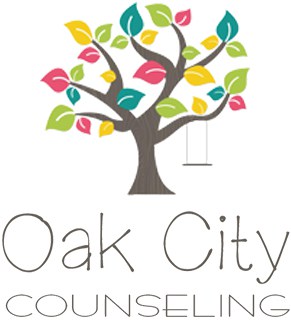In the current sea of child and adolescent therapists, how can you choose the ‘right’ therapist to help your child?
Oftentimes parents will ask their pediatrician, friend, school counselor or teacher for recommendations. Other web savvy parents may look online to try to find the right fit. Everyone is different and what might work for one person might not work for another. A few things to keep in mind however in terms of child therapy are the following:
- Make sure that the therapist has graduated from an accredited Masters degree program, if you haven’t heard of the institution, google them to find out more and to get a better sense of their educational background-did they attend in person or online?
- Confirm that the therapist is licensed by a professional board to practice therapy independently in the current state. Most therapists in North Carolina will have an LCSW (Licensed Clinical Social Worker), LPC (Licensed Professional Counselor), LMFT (Licensed Marriage and Family Therapist), LPA (Licensed Psychological Associate) or LP (Licensed Psychologist). Also be aware that some therapists are fully independently licensed or are working towards their full licensure-usually identified as an ‘Associate’ with an A after the license, i.e.: LCSW-A, LPCA, LMFT-A. Associate licensees must complete a certain amount of clinical hours under a supervisor and pass a licensure exam prior to being fully independently licensed.
- Find a therapist who has extensive knowledge or training in a specific therapy for children. Children are not the same as adults! That’s why a lot of ‘adult’ approaches like traditional talk therapy may not be effective for children, especially children under age 10. Play therapy, family therapy, Theraplay®, Parent Child Interaction Therapy (PCIT) are a few interventions that are considered evidence based therapies for children.
- Ask the therapist about their specific approach, what techniques do they use and what are they based out of? If they use ‘talk therapy’, what is their specific training with children in applying this? If they practice ‘play therapy’ what is their training and which type of play therapy do they use?-Oftentimes therapists may say that they practice play therapy however they may not have received formal training or be utilizing evidence based play therapy approaches. Having toys in a room or playing games with children while talking to them or asking questions is NOT play therapy and is not based on a specific technique or theoretical orientation.
- If a therapist is practicing play therapy be sure to ask what play therapy specific training they have and what type of play therapy they practice. For more information about play therapy please visit The Association for Play Therapy website. A few play therapy techniques offered by Oak City Counseling include: Child Centered Play Therapy (also called Non Directive Play Therapy), Parent Child Interaction Therapy (PCIT), Theraplay®, sand tray therapy and Filial Play Therapy. Other approaches include Adlerian Play Therapy, Jungian Play Therapy, Psychodynamic Play Therapy, Object-Relations Play Therapy, Sand Play Therapy, Cognitive Behavioral Play Therapy, Schema Based Play Therapy, and MORE.
